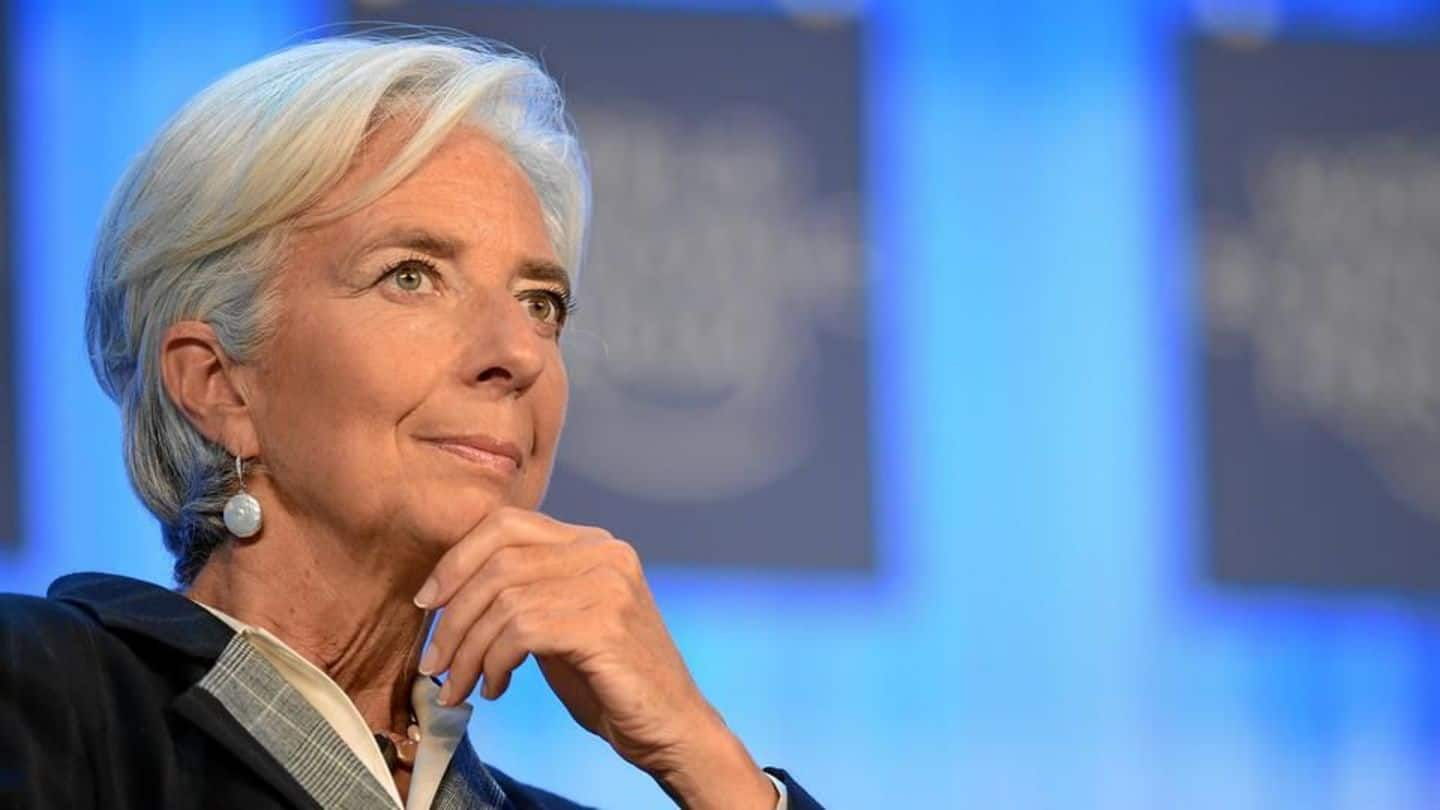
India on solid growth-track, says IMF Chief backing GST, demonetization
What's the story
Only days after the International Monetary Fund slashed India's growth forecast for 2017 and 2018, IMF Managing Director Christine Lagarde said the country's economy is on a "very solid track" in the medium term. She described demonetization and Goods and Services Tax (GST) - India's two major recent reforms- as a "monumental effort". Lagarde said a short-term slowdown due to these reforms is hardly surprising.
Solid Track
Very solid track ahead for Indian economy: Christine Lagarde
Lagarde said IMF "slightly downgraded" India's growth forecast owing to the "lingering impact" of sudden demonetization and newly-introduced GST. She added IMF believes the structural reforms in India would help it get back on the growth-track in the medium and long terms. However, Lagarde stressed countries, including India, must take measures addressing economic concerns as the global economy's recent recovery provides some respite.
Quote
Opportunity for generating more employment
Lagarde stated: "We very much hope that the combination of fiscal, because the deficit has been reduced, inflation has been down significantly, and the structural reforms will actually deliver the jobs that the Indian population, particularly the young Indian people expect in the future."
FinMin
Right time to bring about structural changes: Arun Jaitley
At another conference in Washington, Finance Minister Arun Jaitley said India conducted "key structural reforms" at "the right time" when growth-rate was high. He said India was the fastest-growing economy at the time, adding one doesn't need to wait for "a downward slide". He added though some have criticized the government's demonetization and GST, the reforms received support from IMF and World Bank leaders.
Information
India projected to grow at 6.7%
On 10 October, in its latest World Economic Outlook, IMF lowered India's growth projections to 6.7% in the current year and 7.4% for the next year. They are 0.5 and 0.3 percentage points less than its earlier projections for 2017 and 2018, respectively.